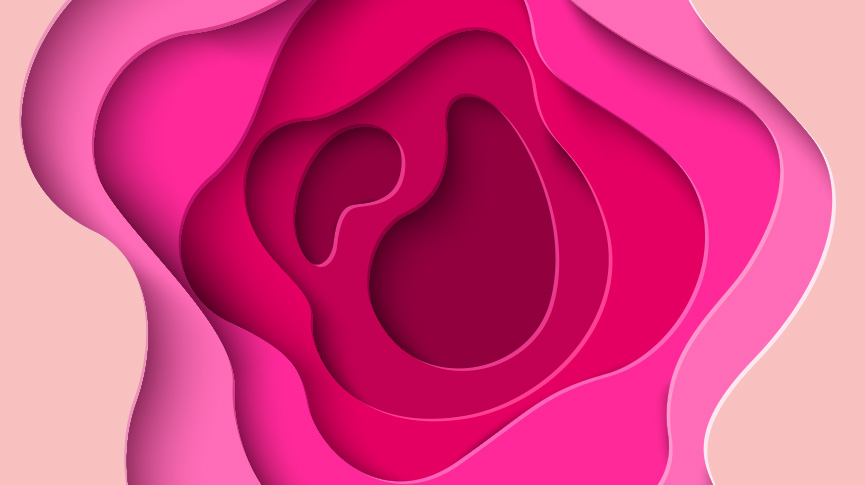Why Do I Have Period Blood Clots?

This article was medically fact-checked by Women’s health expert and Gynaecologist Dr. Alyssa Dweck.
If your period is feeling a little less cranberry juice, and a little more cranberry jam then you might be passing clots. These jelly-like lumps might come as a bit of a surprise the first time you experience them – but they’re actually an extremely common part of having a period. So before you jump to conclusions about these intriguing little lumps – here’s the lowdown on what they are and why you might have them…
Why Do Blood Clots During Menstruation Occur?
‘Clot’ might not be the most pleasant sounding word (or the most pleasant sight) but these little lumps are usually harmless. When you have your period, your body releases proteins to allow blood from the uterus to coagulate. This coagulation prevents the uterine lining from continuing to bleed.
During the heavier flow days, the blood can pool and clotting can occur.. Clots might appear a little darker than your menstrual flow usually is, but rest assured, they are just your period in a more solid form.
Are These Clots Normal?
Many women will experience heavy menstrual bleeding at some point in their lives, and clotting is a common byproduct of this. Having a heavy period is just a fact of life for some women, and experiencing a little clotting from time to time is completely normal. However, if you are concerned by your flow, regularly see clots that are larger than your thumbnail, or notice a change or increase of clots, make sure to speak with your doctor. A lot of women accept heavy, ‘clotty’ periods as a part of life, but they can often be a symptom of an underlying health issue – and in many cases can be treated.
Common Causes Of Blood Clots
Other than a heavy flow, here are a few other common causes of periods clots:
Uterine Fibroids
These benign muscular growths are usually benign, form in the uterus and can often go completely undetected. Fibroids can cause increased menstrual flow, leading to clots, especially if they are located in the uterine lining.
Thyroid Abnormalities
This tiny gland in your neck regulates metabolism, and up to ¾ women with thyroid issues experience heavy menstrual bleeding and consequently, period blood clots.
Hormonal Changes
Your sexual hormones (estrogen, progesterone etc.) are responsible for both the creation and shedding of your uterine lining. If your hormones are imbalanced, then you might experience an extra thick uterine lining, and consequently, clotting.
Endometriosis/Adenomyosis
These conditions are characterized by uterine lining growing outside of its normal place such as the fallopian tubes or ovaries (adenomyosis occurs within the muscle wall of the uterus, while endometriosis can occur anywhere in the body). Both can cause very heavy, painful periods and clotting is a common symptom.
Miscarriage
If there’s a chance you might be pregnant, then sudden heavy bleeding or clotting could be a sign of miscarriage. Make sure to talk to your doctor if you have any concerns about this.
Peri-menopause
Heavy flow and blood clots are often one of the signs of perimenopause or the 4-8 year transition towards menopause.
Medication
Some medications, especially blood thinners, may have a side effect of heavy flow and possible period clots, so make sure to consult with your doctor if you think your medication could be causing clots.
How To Manage Menstrual Blood Clots
Harmless though they are, blood clots can be tricky to manage. If you are a pad user, you might find that your pad can’t absorb your clots and they sit on top of the pad. This might also be the case if you’re a tampon user, with clots collecting above your tampon. Clots are much more easily managed with menstrual cups that collect blood as opposed to absorbing it.
Why Menstrual Cups Are Perfect For Period Clots
Menstrual cups are inserted into the vagina to collect your flow, unlike tampons and pads which are absorbent and can cause dryness and irritation. Cups are great for heavy flow and some, like the classic Lily Cup, have a higher capacity than even a super tampon. They can be worn for up to 8 hours, and are completely reusable, so you just rinse and reinsert.
Menstrual cups will let your clots pass, with minimal disruption to your natural flow, and you can even examine the color and consistency of your clots to help monitor any changes.
The first time you experience clots can be a little unnerving but rest assured that they are very common and usually completely harmless. Hopefully, you now know everything you ever wanted to know about period clots (plus some facts that you maybe could’ve done without). If you’re worried about the size or frequency of these little lumps, be sure to talk to your doctor. Otherwise, take these tiny blobs for what they are – just another period peculiarity.
Facts checked by:
Dr. Alyssa Dweck
Alyssa Dweck MS, MD, FACOG is a practicing gynecologist in Westchester County, New York. She provides care to women of all ages; she has delivered thousands of babies. She is proficient in minimally invasive surgery and has special interest and expertise in female sexual health and medical sex therapy. She is top doctor in New York Magazine and Westchester Magazine. Dr. Dweck has co-authored three books including the most recent release The Complete A to Z For Your V.
Written by:

A collective group of “lady experts” at Intimina who love sharing our personal experiences, even when they are a little too personal. We believe it’s time to start breaking down the taboos around menstruation, motherhood, and menopause, and start owning our female health.




How do I overcome these blood clots..need remedy
Intima is the first EVER email newsletter I have voluntarily signed up for without just using it for a coupon. I consider myself fairly well-educated, but wow, I wish I had known all this stuff in sixth grade!
Very informative ?
Thank you.